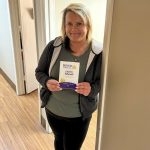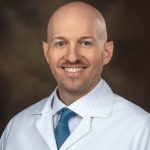Pediatrician Dr. Nguyen and Certified Pediatric ARNP Heather Carter

Nurse Practitioners Help Ease the Strain In Health Care Systems
By Robin Williams Adams
THE LEDGER
Published: Sunday, December 21, 2014 at 11:20 p.m.
WINTER HAVEN | Dr. Kenny Nguyen had more patients needing care than he had hours in which to see them.
Angela Parker wanted to take her children to their pediatrician’s office when they got sick, but she couldn’t miss too much time from work.
Adding advanced registered nurse practitioners to the mix of patient care resolved both their problems.
Nguyen, a pediatrician at Bond Clinic, works with two nurse practitioners.
That allowed the clinic to start evening pediatric hours during the past year, which let Parker bring her children there after work Tuesday when they had bad sore throats.
That’s one of many examples of how nurse practitioners — registered nurses with master’s or doctoral degrees and specific additional clinical training — are becoming a more noticeable part of Polk County’s health care.
Their increasing presence often is overlooked amid annual legislative battles on expanding nurse practitioners’ autonomy in Florida.
Advanced nurse practitioners straddle the nursing and physician approach to care, adding another skilled professional who can assess, diagnose and treat a growing patient load.
“As we have expanded the patient population, I alone cannot have enough time to take care of all the patients we have,” said Nguyen, pronounced “win,” who also provides a clinical training site for student nurse practitioners. Bond Clinic has 17 nurse practitioners now, making up more than one-fourth of its health care providers. When Nguyen arrived seven years ago, the clinic had three, he said.
A similar transformation took place at Central Florida Health Care, the nonprofit community health center with clinics throughout Polk. It had two when Dr. Heather Lutz, its chief clinical officer, came three years ago.
Now, its website lists nine, close to half the program’s number of doctors.
“In our rural areas, it’s hard to recruit physicians,” Lutz said. “We’ve added more nurse practitioners. … They’ve been a really great asset.”
Polk has 479 advanced registered practice nurses now, according to Florida Department of Health records. There are 13,000 to 15,000 practicing in Florida.
A 2012-13 list, done for the Florida Association of Nurse Practitioners, showed 345 with Polk cities as their address of record, indicating the growth in local numbers.
STRONG DEMAND
More are on the way. Slightly more than 100 students are in the advanced registered nurse practitioner program at Florida Southern College, said Beverley Brown, who directs its graduate nursing program.
Their added training includes advanced assessment, pharmacology and pathophysiology, the pathology of the disease process, Brown said.
Steve Ellison, who came from eastern Hillsborough for the FSC program, said he wanted a more interesting, challenging role than he had as a nurse educator.”I’m focused on primary care, like being a general internist,” he said.
Local hospitals and medical practices said they employ nurse practitioners in various ways to improve access to care, expand the number of patients treated and improve quality. Gessler Clinic has two nurse practitioners and two physician assistants, another type of physician “extenders” working with some of its 40 doctors. The clinic is seeking another, administrator Sharon Hart said.
Watson Clinic has 19 nurse practitioners, not counting certified registered nurse anesthetists, and 14 physician assistants, said Sharon Paul, Watson Clinic’s director of professional services.
She said nurse practitioners are “key for routine and timely patient management.”
Nurse practitioners are in more than a dozen departments at the clinic, said Melinda Harrison, Watson’s senior associate administrator of operations. They range from primary care to specialties such as cardiology and radiology, giving a feel for the breadth of their abilities.
An increasing number of clinic physicians are asking for a nurse practitioner or physician assistant in their practices, Harrison added. Lakeland Regional Medical Center uses them throughout the hospital in various capacities, as do other hospitals.
Lakeland Regional Family Health Center has three nurse practitioners and two doctors.
A pilot program on an LRMC medical floor pairs nurse practitioners with hospital-based physicians.
AN INTEGRAL PART
Dottie Gregory, one of the nurse practitioners on that floor, does rounds with hospital-based Dr. Kelly King, an internal medicine physician.
Gregory can take patient histories, prescribe medicines, diagnose and treat patients in that partnership since earning her advanced registered nurse practitioners degree last year at Florida Southern College.
Both she and King work with other members of the team on that floor, which includes registered nurses and a clinical nurse specialist.
Getting the added certification gave her more knowledge and authority, Gregory said, but she still can devote the extra time to a patient that a doctor may not have.
Laurie Pomella, an instructor at Florida Southern who works part time in a hospital intensive care unit, said training as a nurse practitioner “makes it easier for me to look at the bigger picture” while diagnosing a patient.
“Now, I’m the one responsible for ordering those tests,” she said. “Now, I’m the one responsible for interpreting them.”
At Bond Clinic’s evening urgent care program, Heather Carter was the pediatric nurse practitioner working the evening Parker brought in her sons, Zion Willis, 7, and William Willis Jr., 10. They left with a diagnosis and a surprise.
Two tiny beads had gotten stuck in one of Zion’s ears, which Carter took care of.
“This is his first time seeing (a nurse practitioner) but he loves her,” Parker said as Zion flashed a big grin.
Carter handled their assessment, diagnosis and treatment on her own, although Nguyen was reachable if needed.
Carter, a pediatric nurse for seven years, sought the extra authority and training of an nurse practitioner to have a more challenging role in giving care.
EXPANDED ROLE
The added autonomy is what attracts Devenie Robbins, a registered nurse who is getting her nurse practitioner training at South University and doing a clinical rotation with Nguyen and his nurse practitioners.
“This was my aspiration, to be a family nurse practitioner,” Robbins said. “I definitely want the autonomy and being able to be more involved in the decision mode of your patients’ care.”
While advanced registered nurse practitioners do have a greatly expanded role in patient care, their autonomy isn’t complete in Florida.
They work under the supervision of physicians who, while not required to be physically present, do determine the scope of nurse practitioners’ practice in a clinic or office.
Nguyen signs off on her charts at Bond Clinic, Clark said, and needs to be available to her by phone.
“Physicians agree to share responsibility with the nurse practitioner or physician assistant for the care provided to their patients,” said Watson Clinic’s Paul.
Inability to act entirely on their own authority, including setting up their own independent practices, as some other states allow, is one of the issues the Florida Association of Nurse Practitioners is trying to change in Florida.
Florida is one of a dozen states the American Association of Nurse Practitioners lists as restricted states, those whose state practices and laws restrict a nurse practitioner from being able to engage in at least one key element of a nurse practitioner’s practice.
Those states require supervision, delegation or team management for the nurse practitioner to give care.
Full practice rights, which the association said the Institute of Medicine and National Council of State Boards of Nursing recommend, would let them evaluate, diagnosis, treat and prescribe medicine under the licensing authority of a state nursing board.
EXPANSION SOUGHT
The Florida association has support from associations as diverse as the Institute of Medicine, the Florida Hospital Association and Florida TaxWatch in trying to expand nurse practitioners role in Florida, said Susan Lynch, its chief executive.
Nurse practitioners could provide up to 80 percent of patients’ primary care needs “if Florida did not have legislative mandates preventing them from practicing to the full extent of their training,” a March report from Florida TaxWatch said.
Another concern is a restriction that prevents them from prescribing pain medication, something they can do in most other states, Lynch said.
That frustrates some advanced nurse practitioners.
“If I’m licensed and accountable for those prescriptions, I don’t think I should be limited to what those prescriptions are,” Pomella said.
The Florida Medical Association, representing physicians, is the chief opponent of legislative attempts to expand Florida nurse practitioners’ role.
Their arguments include the shorter length of advanced registered nurse practitioners training, in comparison to that of doctors, and the state’s history of problems with prescription drug abuse.
Increased demand for care from patients newly insured through the Affordable Care Act, combined with pending and current doctor shortages, are adding new fuel to the ongoing debate.
[ Robin Williams Adams can be reached at [email protected] or 863-802-7558. Read her blog at robinsrx.blogs.theledger.com. Follow on Twitter @ledgerROBIN. ]
 Treating you well since 1948
Treating you well since 1948 


